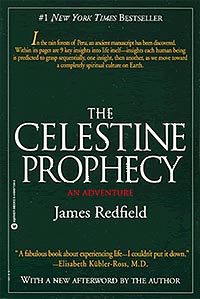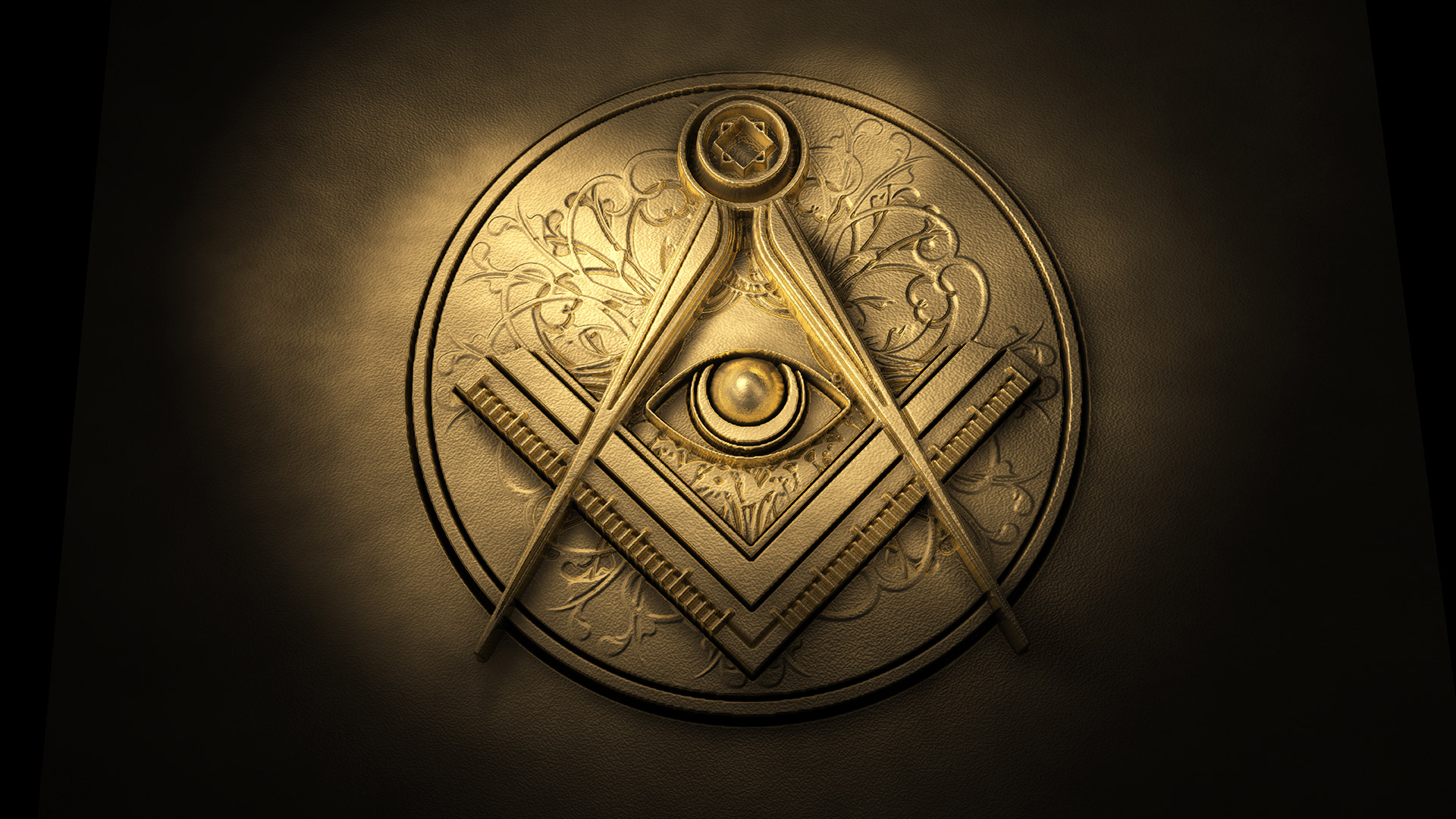The Celestine Prophecy
Is this book a heavenly insight or a New Age fraud?
By Dennis Pollock

“Beware lest anyone rob you through philosophy and empty deceit…” (Colossians 2:8)
For almost a year it has been on the best seller list. It is being taught in churches, and has developed a cult-like following in a very short time. Study classes have gathered all over the country to discuss its precepts and implement its “insights.” The Celestine Prophecy, written by James Redfield, is the latest New Age oracle which has managed to transcend the boundaries of the crystal gazers and navel meditaters, and reach out to large numbers of mainstream Americans.
The book makes some pretty pretentious claims for itself. From the inside flap of the book cover, we read:
“When you find and understand all 9 of the insights you will have an exciting new image of human life, and a positive vision of how we will save this planet, its creatures, and its beauty… And you will suddenly recognize the quantum leap forward humankind is preparing to make as we approach the new millennium.”
On the back of the cover we find in bold print: “You have never read a book like this before… a book that comes along once in a lifetime to change lives forever.”
Any book making claims like that has got a lot to live up to. There are, in fact, people who claim that the book has transformed their lives. Cosmetics saleswoman Frances Griggsby uses its teachings in dealing with her customers. Paramedic Chester Davison takes the author’s advice about grabbing onto life’s coincidences, and Nickie Molaire talks to strangers she would have once shut out.
The Peruvian Manuscript
The story begins with a restless, disgruntled social worker who can’t figure out what’s wrong in his life. When an old friend calls him out of the blue, she intrigues him with the story of an ancient manuscript that has been found in Peru. This manuscript supposedly contains all the secrets of life, but is being suppressed by the Peruvian government. The social worker is so swept up by the few things he is told, that he books a flight for Peru, to go in search of the document that can tell him the meaning of life.
Once in Peru, he spends the rest of the novel’s length in avoiding hostile and misguided Peruvian officials who want to arrest him, and finding bits and pieces of the insights (numbered 1-9) that the manuscript reveals. As the story progresses our hero becomes wiser and wiser, learning step by step the philosophy of life which all mankind (excuse me, humankind) is destined to ultimately grasp.
He learns that all life’s coincidences are meant for a purpose, created by a universal energy for the unfolding of man’s spiritual evolution. He learns to draw on the universal source of energy, and thus be freed from the need of dominating others to steal their energy. He glimpses his oneness with the universe, and how to increase his energy by meditating on its beauty. By the end of the story he is getting so good at “energy drawing” that he finds himself turning invisible, though only for a short time.
Had this book come out in any other generation than our own, it would have been laughed off the shelves. It is not particularly well written and the new age delusions of grandeur approach the point of utter cornball. What this novel does have going for it is that it fits in beautifully with the many other truths that Shirley McLaine (Out On A Limb), Betty Eadie (Embraced by the Light), and all the other new age gurus have been saying for the last couple of decades.
Author James Redfield was asked, “Is there actually an old manuscript?” He replied, “The answer to that is no. I do think the insights in the book are coming to many, many of us at the same time.” With that I certainly agree. There is a spirit of deception that has been loosed in our time which is speaking very similar things to many, many people. The Scriptures warn us: “Do not believe every spirit, but test the spirits to see whether they are of God, because many false prophets have gone out into the world” (1 John 4:1).
The Nine Insights
This novel centers around nine insights which humans will begin to grasp sequentially, one insight then another, as they move from their present state to a completely spiritual culture on earth. The attaining and comprehending of these insights is the salvation offered by Mr. Redfield. None of them relate to Jesus Christ. Nothing is said about forgiveness of sins or reconciliation to God. Instead we are told that by learning and applying these insights, our lives will be spiritual and fulfilling, and all will be well. Obviously the cross of Jesus has no place here.
The insights are a curious hodgepodge of homespun philosophy, borrowed pop-psychology, and new age rhetoric. The first step is to realize that all of life’s coincidences are for a purpose. The second one is to realize that man has left traditional religion, tried materialism, and now must find true spirituality (through the insights, of course). The third insight is that there is an invisible energy which people must learn to perceive, and that the universe is energy that responds to our expectations. The fourth reveals that the world is a vast competition for energy, and the fifth says that the “universe” can provide all the energy we need if only we can open up to it. I could go on, but I think you get the idea.
The fact that people are actually taking this seriously speaks volumes about the theological ignorance of Americans. Were it not for the fact that this book is a best-seller, I would be tempted to write it off as a silly piece of harmless fluff. But to thousands this book is not silly; it is an explanation of life’s mysteries. Elizabeth Kubler-Ross writes on the front cover: “A fabulous book about experiencing life — I couldn’t put it down.”
Jesus vs. the Nine Insights
Let us consider some of the areas where we find the worldview that Christ believed and taught at odds with The Celestine Prophecy‘s insights. Mr. Redfield seems very defensive about his book not contradicting any religion, but rather building on their truths and revealing their true nature. When he was asked what was the book’s central theme, he responded, “Each of us can come to a place where we make a true connection with the divine no matter what religion we are. And when we do so, we can begin to see that the world will open up to us to complete a mission or a calling.” When the main character of the book had a mystical experience of being one with the universe, he was told, “This is the experience the mystics of every religion have always described.”
This eclectic, all religions are fine, approach sounds very open minded and noble, but runs directly contrary to the teaching of our Lord Jesus Christ. He declares emphatically, “If you believe not that I am He, you will die in your sins.” In John 10 He proclaims, “I am the door of the sheep. All who ever came before Me are thieves and robbers, but the sheep did not hear them.” And in a great display of religious intolerance He boldly declared, “I am the way, the truth, and the life. No man comes to the Father, except through Me” (John 14:6).
Thus we come to a dilemma. From whom shall we obtain our theology? From James Redfield or Jesus Christ? Let us consider their qualifications. Mr. Redfield has written one popular book. Jesus Christ has come from heaven, died for the sins of the world, risen from the dead, and sits at the right hand of the Father, having received all authority in heaven and on earth.
Energy, Energy Everywhere
If there is one word that gets run into the ground in the story, it is energy. According to the insights, life is all about energy. The manuscript reveals that “eventually humans would see the universe as comprised of one dynamic energy, an energy that can sustain us and respond to our expectations. Yet we would also see that we have been disconnected from the larger source of this energy, that we have cut ourselves off and so have felt weak and insecure and lacking.” Although God is mentioned a few times in the book, the real god of this book is energy.
The Bible, likewise speaks about energy. The Greek word energeia (from which we derive our word energy) is often used to describe the powerful working of the Holy Spirit in the believer. Paul uses this term in Colossians: “To this end I also labor, striving according to His working [energeia] which works in me mightily.”
So as a Christian I am not opposed to the idea of spiritual energy. However the Scriptures make plain that God’s energy is only available through Jesus Christ and the filling of the Holy Spirit. This is not some universal power available to people of all religions. Jesus said, “He that believes on Me, out of his belly shall flow rivers of living water” (John 7:38). In Acts He promised, “You shall receive power after the Holy Spirit has come upon you, and you shall be witnesses of Me” (Acts 1:8). No Muslims, Hare Krishnas, atheists, or new agers need apply!
What this tale fails to take into account is that there is an evil energy that is at work in the world. This is the very energy that will one day empower the Antichrist. Paul writes, “The coming of the lawless one is according to the working [energeia] of Satan, with all power, signs, and lying wonders” (2 Thessalonians 2:9). Those who would desire to open themselves up to universal energy, without bothering to make Jesus Christ the Lord of their lives, may find that the energy they receive comes from a most malicious source.
Where is the Cross?
The most condemning aspect of this book has got to be what it does with Jesus. For the better part of the book Jesus is not mentioned. Salvation of mankind is to be through the “insights.” But near the end we finally learn what we are to think about Jesus. One of the “enlightened” priests spells it out:
“Isn’t the story of the scriptures a story of people learning to receive God’s energy and will within … And isn’t that receptivity to God’s energy within what culminated in the life of a carpenter’s son, to the extent that we say God, himself, descended to earth? … Didn’t Jesus, himself, say that what he did, we could do also, and more? We’ve never really taken that idea seriously, not until now. We’re only now grasping what Jesus was talking about, where he was leading us. The Manuscript clarifies what he meant! How to do it!”
So now Mr. Redfield presumes to clarify for us the purpose for which Jesus came. He came to show us all how to tap into the universal energy. Yet where is the cross in all of this? The Bible tells us that man is a sinner (Romans 3: 9,10), he has an evil, wicked nature (Romans 7:20), and must be born again in order to have a hope of heaven (John 3:3). Christ died in our place for our sins on the cross (Galatians 1:4), shed His blood for the remission of our sins (Ephesians 1:7), and has made it possible for us to be reconciled to God (Ephesians 2:13).
What a vast difference there is between The Celestine Prophecy‘s “Life is energy” nonsense, and the revelation of God’s plan of salvation for man, as revealed in the Holy Scriptures! The one thing Mr. Redfield dares not touch is the cross. No mention whatever is made of the cross of Jesus in his book. No doubt he realizes that the message of the cross is somehow incongruous with his religion of universal energy.
The Scriptures plainly teach that man’s great need is not some unnamed universal energy, but rather to have his sins forgiven and to enter into a restored relationship with His loving Creator. This is what Christ has made possible for us when He died on the cross and three days later rose from the dead. Those who cling to the vain philosophies of the imaginations of men, forfeit the grace and mercy that is ours through the free gift of the righteousness of Christ.
If you have no assurance in your heart that you have ever been born again, why don’t you give your heart to Jesus today? Receive Him as your Lord and Savior, and put away foolish speculations that can do nothing for your soul. Invite Christ into your heart and life, and let your confidence rest upon the sure foundation of the grace of God. “But as many as received Him, to them He gave the right to become children of God, even to those who believe in His name” (John 1:12).




